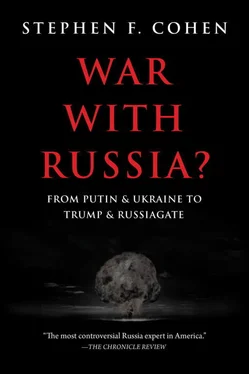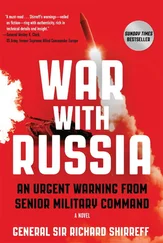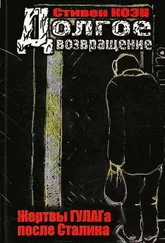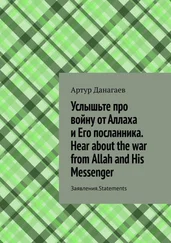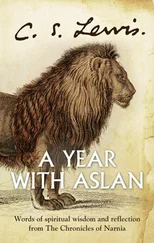In short, twenty years of US policy have led to this fateful American-Russian confrontation. Putin may have contributed to it along the way, but his role during his fourteen years in power has been almost entirely reactive—a complaint frequently directed against him by more hardline forces in Moscow.
* * *
In politics as in history, there are always alternatives. The Ukrainian crisis could have at least three different outcomes. The civil war escalates and widens, drawing in Russian and possibly NATO military forces. This would be the worst outcome: a kind of latter-day Cuban Missile Crisis. In the second outcome, today’s de facto partitioning of Ukraine becomes institutionalized in the form of two Ukrainian states—one allied with the West, the other with Russia. This would not be the best outcome, but neither would it be the worst.
The best outcome would be the preservation of a united Ukraine. It will require good-faith negotiations between representatives of all of Ukraine’s regions, including leaders of the rebellious southeast, probably under the auspices of Washington, Moscow, the European Union, and eventually the UN. Putin and his foreign minister, Sergei Lavrov, have proposed this for months. Ukraine’s tragedy continues to grow. Thousands of innocent people have already been killed or wounded.
Alas, there is no wise leadership in Washington. President Barack Obama has vanished as a statesman in the Ukrainian crisis. Secretary of State John Kerry speaks publicly more like a secretary of war than as our top diplomat. The Senate is preparing even more bellicose legislation. The establishment media rely uncritically on Kiev’s propaganda and cheerlead for its policies. American television rarely, if ever, shows Kiev’s military assaults on Luhansk, Donetsk, or other Ukrainian rebel cities, thereby arousing no public qualms or opposition.
And so we patriotic heretics remain mostly alone and often defamed. The most encouraging perspective I can offer is to remind you that positive change in history frequently begins as heresy. Or to quote the personal testimony of Mikhail Gorbachev, who said of his struggle for change in the late 1980s inside the even more rigidly orthodox Soviet nomenklatura: “Everything new in philosophy begins as heresy and in politics as the opinion of a minority.” As for patriotism, here is Woodrow Wilson: “The most patriotic man is sometimes the man who goes in the direction he thinks right even when he sees half of the world against him.”
February 12, 2014
THE DEGRADATION OF MAINSTREAM AMERICAN PRESS coverage of Russia, a country still vital to US national security, has been under way for many years. If the recent tsunami of shamefully unprofessional and politically inflammatory articles in leading newspapers and magazines—most recently about the Sochi Olympics, Ukraine, and, as usual, Russian President Vladimir Putin—is an indication, this media malpractice is now pervasive and the new norm.
There are notable exceptions, but a general pattern has developed. Even in the venerable New York Times and Washington Post , news reports, editorials, and commentaries no longer adhere rigorously to traditional journalistic standards, often failing to provide essential facts and context; make a clear distinction between reporting and analysis; require at least two different political or “expert” views on major developments; or publish opposing opinions on their op-ed pages. As a result, American media on Russia today are less objective, less balanced, more conformist, and scarcely less ideological than when they covered Soviet Russia during the preceding Cold War.
The history of this degradation is also clear. It began in the early 1990s, following the end of the Soviet Union, when the US media adopted Washington’s narrative that almost everything President Boris Yeltsin did was a “transition from communism to democracy” and thus in America’s best interests. This included Yeltsin’s economic “shock therapy” and oligarchic looting of essential state assets, which destroyed tens of millions of Russian lives; armed destruction of a popularly elected Parliament and imposition of a “presidential” Constitution, which dealt a crippling blow to democratization and now empowers Putin; brutal war in Chechnya, which gave rise to terrorists in Russia’s North Caucasus; rigging of his own reelection in 1996; and leaving behind in 1999, his approval ratings in single digits, a disintegrating country laden with weapons of mass destruction. Indeed, most American journalists still give the impression that Yeltsin was an ideal Russian leader.
Since the early 2000s, the media have followed a different leader-centric narrative, also consistent with US policy, that devalues multifaceted analysis for a relentless demonization of Putin, with little regard for facts. If Russia under Yeltsin was presented as having entirely legitimate politics and national interests, we are now made to believe that Putin’s Russia has none at all, at home or abroad—even on its own borders, as in Ukraine.
Russia today has serious problems and many repugnant Kremlin policies. But anyone relying on mainstream American media will not find there any of their origins or influences in Yeltsin’s Russia or in provocative US policies since the 1990s—only in the “autocrat” Putin who, however authoritarian, in reality lacks such power. Nor is he credited with stabilizing a disintegrating nuclear-armed country, assisting US security pursuits from Afghanistan and Syria to Iran, or even with granting amnesty, in December, to more than 1,000 jailed prisoners, including mothers of young children.
Not surprisingly, in January The Wall Street Journal featured the widely discredited former president of Georgia, Mikheil Saakashvili, branding Putin’s government as one of “deceit, violence and cynicism,” and the Kremlin as the “nerve center of the troubles that bedevil the West.” But wanton Putin-bashing is also the dominant narrative in centrist, liberal, and progressive media, from the Post, Times , and The New Republic to CNN, MSNBC, and HBO’s Real Time with Bill Maher , where Howard Dean, not previously known for his Russia expertise, recently declared, to Maher’s and his panel’s great approval, “Vladimir Putin is a thug.”
American media therefore eagerly await Putin’s downfall—due to his “failing economy” (some of its indicators are better than US ones), the valor of street protesters and other right-minded oppositionists (whose policies are rarely examined), the defection of his electorate (his approval ratings remain around 65 percent), or some welcomed “cataclysm.” Evidently believing, as does the Times , for example, that democrats and a “much better future” will succeed Putin (not zealous ultranationalists growing in the streets and corridors of power), US commentators remain indifferent to what the hoped-for “destabilization of his regime” might mean in the world’s largest nuclear country.
* * *
For weeks, this toxic coverage has focused on the Sochi Olympics and the deepening crisis in Ukraine. Even before the Games began, the Times declared the newly built complex a “Soviet-style dystopia” and warned in a headline, “Terrorism and Tension, Not Sports and Joy.” On opening day, the paper found space for three anti-Putin articles and a lead editorial, a feat rivaled by the Post . Facts hardly mattered. Virtually every US report insisted that a record $51 billion “squandered” by Putin on the Sochi Games proved the funds were “corrupt.” But as Ben Aris of Business New Europe pointed out, as much as $44 billion may have been spent “to develop the infrastructure of the entire region,” investment “the entire country needs.”
Читать дальше
